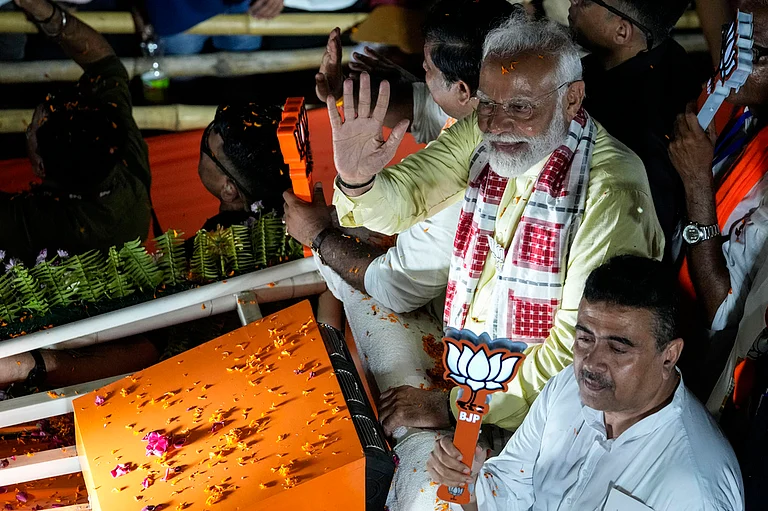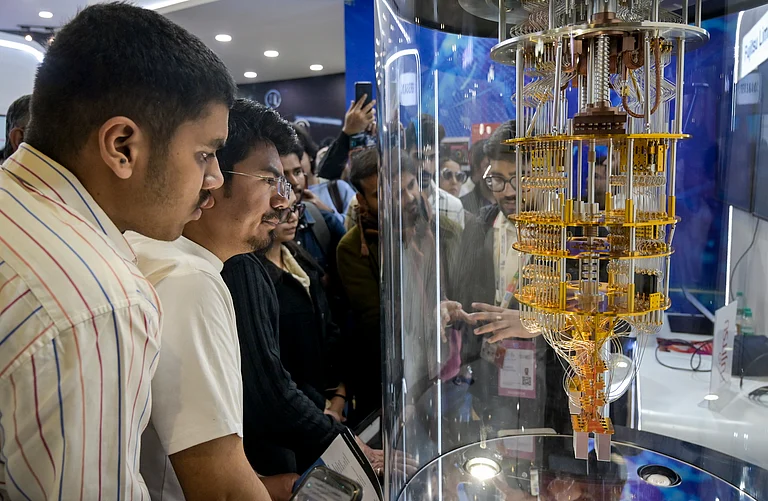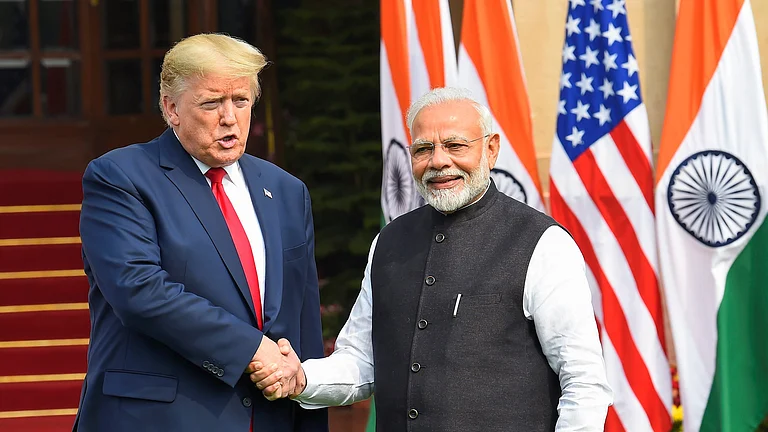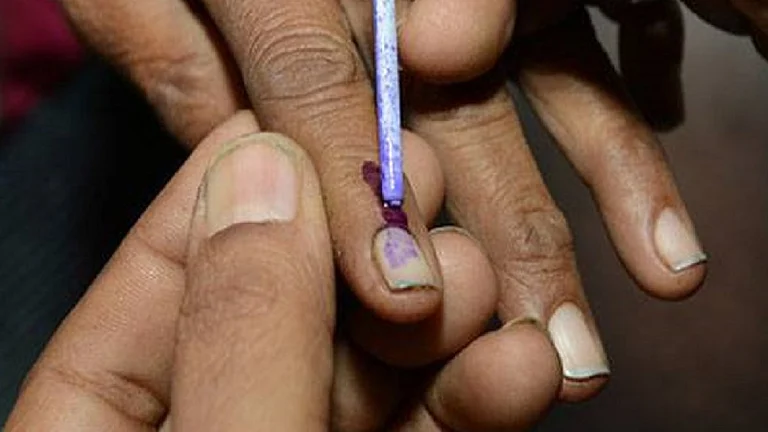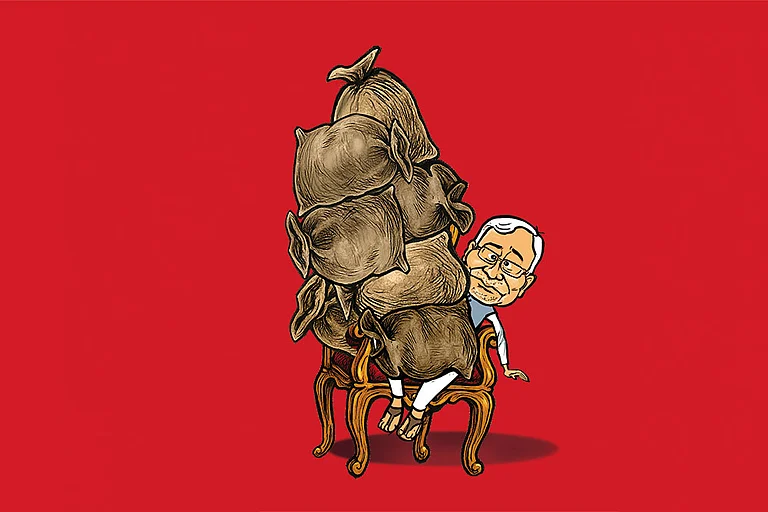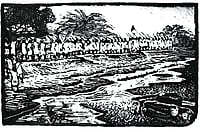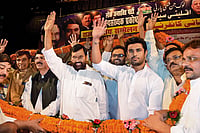
Muslims in India, perhaps in every election, look for their representatives who would address their hopes, aspirations and livelihoods.
The politics of hate and fear during electoral mobilisation on the basis of social-identities helps the communities who are numerically more than the other communities to garner votes.
In the recent Bihar elections, Muslims were targeted by whipping up the issues of ‘infiltrators’ (ghuspaithiye) and ‘insecurity’, particularly in the second phase after the Delhi Red Fort blast
Keeping at bay, for the moment, the allegations and controversies surrounding the Election Commission of India (ECI) for not conducting fair elections in Bihar, the election results have foxed many political pundits. It failed the expectations of exit-pollsters by giving them much more than their anticipations. The scale of victory for the winning coalition, the National Democratic Alliance (NDA), in terms of vote share and seat share is unprecedented, with the Bharatiya Janata Party’s (BJP) strike rate almost crossing 90 per cent, and that too without a visible wave, seems pretty unconvincing and unnatural. The squeezing of the Opposition to the level of insignificance may not auger well for the smooth functioning of procedural democracy.
Democracy is robust when there is a significant possibility, or at least hope, for the Opposition to win the elections. Bihar elections have enfeebled, in a variety of ways, the oppositional politics. Also, the results have triggered, among others, a big churn in Muslim politics in India.
A truly representative democracy finds ways and means, designs political institutions, and builds on the political traditions to accommodate diversity in its political processes. It envisages representation of all sections of the society, both in terms of territorial and communities, and more specifically those belonging to the margins—who are culturally, socially and economically oppressed. In a representative democracy, it is important to understand the relationships between the people/communities and their formal representatives. There lies the multi-layered paradox of political representation, as there have been deep tensions between the way politics and policies are practiced by the formal representatives and the hopes, aspirations and demands of the represented. At times, however, the outcomes of the institutions of parliamentary democracy seem to go counter to what the dynamics of ‘popular politics’ reflect. It is in this sense we often witness elections primarily to be the arena for managing the local-social dominance relations and the site where the struggles for dignity and social identity are fought.
Muslims in India, perhaps in every election, look for their representatives who would address their hopes, aspirations and livelihoods. The precarity of their socio-economic conditions and the increasing levels of physical insecurity leave us to ask a few fundamental questions on their representation: Who is their representative? Can Muslims only be the representative of Muslims? Why can’t Hindus, or for that matter anyone, represent them? So, what actually is represented and what does the representative do? Why do we see Muslims all along—national and state legislatures—hugely underrepresented when compared to their overall population?
The Muslim community makes up 17.7 per cent of Bihar’s 13.07 crore population (2022-23 state caste survey), which is slightly higher than the national average of 14.2 per cent, and therefore, constitutes an important segment of Bihar’s electorate. But when it comes to their own representation in the assembly, it presents a very dismal picture. Muslim members as percentage of the total elected members have never ever reached the 10 per cent mark—highest being 9.8 per cent in the 2015 elections and lowest being 4.1 per cent in the recent elections in 2025, with an average hovering around 6.5 per cent.
Such low representation of Muslims in the Vidhan Sabha, elections may be attributed to three reasons. One, the electoral system of the first-past-the-post (FPTP) allows the person taking most of the votes as elected, referred generally as the majoritarian system, which, in fact, is misleading because the candidate just wins a plurality—most votes and not a majority. In this system, parties can win a majority of seats without even a plurality of votes. Muslims voting in a highly communally polarised political setting conversely leads to the consolidation of votes on the opponent side and even its slight edge gets a push by FPTP system, causing disadvantage to Muslims.
Second, the politics of hate and fear during electoral mobilisation on the basis of social-identities helps the communities who are numerically more than the other communities to garner votes, and minorities therefore remain in the disadvantageous positions. We have seen how the social faultlines get sharpened and divisions get deeper during elections. It has also been observed that whenever communalism trips caste, it is disadvantageous to Muslims, or advantageous to parties stoking communal cleavages. And, third, Muslims have a very little choice in voting for a Muslim candidate, because almost all parties, mainly the mainstream ruling and oppositional parties, field very few Muslim candidates. The BJP rarely fields any Muslim candidate, but plays identity politics to the core targeting Muslims as ‘others’. In such an electoral milieu, Muslims as voters have been rendered as politically insignificant, despite of some consequence numerically in some constituencies.
In the recent Bihar elections, Muslims were targeted by whipping up the issues of ‘infiltrators’ (ghuspaithiye) and ‘insecurity’, particularly in the second phase after the Delhi Red Fort blast. The infiltrators issue was largely focused in the Seemanchal sub-region, which has a Muslim population share of 42 per cent and is home to 30 per cent of Bihar’s Muslims. Out of 24 seats in this region, the ruling-coalition (NDA) managed to garner (13 seats), much more than what the Opposition-coalition (Grand Alliance) could garner (five seats). The All India Majlis-e-Ittehadul Muslimeen (AIMIM) now holds a distinction of having the highest number of Muslim MLAs in the state (five seats), all from the Seemanchal region, and the region holds the distinction of sending an all time high of 64 per cent of the Muslim MLAs to the assembly. Post-elections, the overall number of Muslim MLAs has plummeted to a historic low of just 10.
Though it would be a bit naïve to understand Muslim representation in Bihar through Seemanchal’s lens, it does explain, nevertheless, to a very large extent the churn and myths of Muslim politics in Bihar. Muslims are often touted as ‘vote bank’ of the party that reaches out to them for their welfare and the party is slandered for its so-called ‘appeasement-politics’. These innuendos for the Muslims and the parties, who think of some welfare for Muslims, have kept Muslims at the margins and a kind of political pariah in electoral democracy. The fact that all political parties, small or big, national or regional, appeal to their own social mass base while mobilising through their own identity politics, they seldom meet the kind of opprobrium when they reach out to Muslims. The results of the Bihar election indicate the ugly ghettoisation of Muslim representation, which, in the long run, would mean political exclusion of the Muslims and insignificance in other regions.
The AIMIM garnering a majority of Muslim MLAs through its communal verbosity during campaigns will not auger well with the Muslims, as they would be further ghettoised on communal lines. Muslims voting for the AIMIM may also be seen as a split in their votes, which led to the gains for the NDA. So, Muslims voting en bloc myth has got shattered. The Bihar election results have shown, in quite an uncanny way, that the key concerns of Muslims, security, exclusion and livelihood, would still remain a far cry until the next elections.
(Views expressed are personal)
MORE FROM THIS ISSUE
Tanvir Aeijaz teaches politics and public policy at the University Of Delhi and is hon. vice-chairman and member secretary at the centre for multilevel federalism, Institute Of Social Sciences, New Delhi.
This article appeared as 'The Precarity Of Muslims' in Outlook’s December 1, 2025 issue as 'The Burden of Bihar' which explores how the latest election results tell their own story of continuity and aspiration, and the new government inherits a mandate weighted with expectations. The issue reveals how politics, people, and power intersect in ways that shape who we are—and where we go next.








